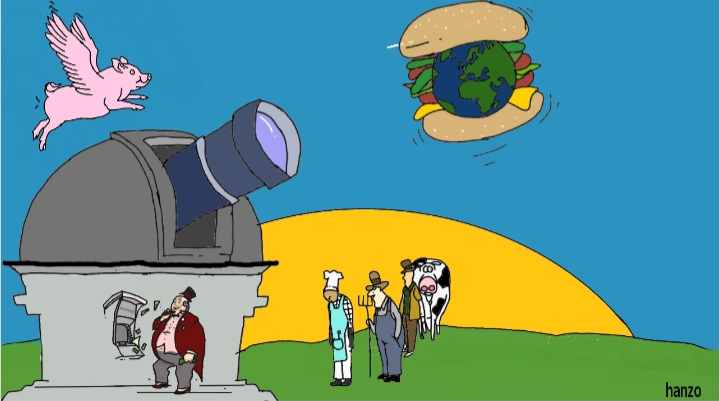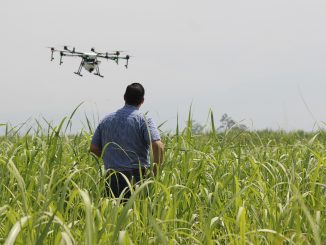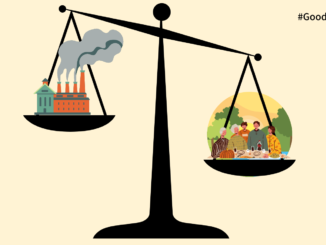Updated links for documents 14.00 hrs and 14.14 20/05/2020
Despite enormous lobby pressure, the EU Commission’s flagship Green Deal strategies – the Farm to Fork and the Biodiversity Strategies – have retained their initially leaked targets for a reduction in fertilizers, pesticides, antimicrobials, and concurrently, for an increased in organic farming to 25% – and all by 2030. The 10% target for high diversity landscape features has also been retained.
These now confirmed targets are:
- Reduce by 50% the overall use of – and risk from – chemical pesticides by 2030 and reduce by 50% the use of more hazardous pesticides by 2030.
- The reduction of use of fertilisers by at least 20%.
- At least 10% of agricultural area is under high-diversity landscape features.
- At least 25% of agricultural land is under organic farming management, and the uptake of agro-ecological practices is significantly increased.
While still considered far short of what is needed to avert the biodiversity crisis, the covid19 context has sharpened the focus of the mainstream agri-lobby, with calls for both initiatives to be postponed or rerouted down long-winded assessment paths.
One caveat is that the CAP transitional regulation, which passed last Friday: this delays significant change in CAP for two years.
Nevertheless, today represents a surprising steadfastness on the part of the Commission, in the case of the main lobby and the main political group (EPP) opposition – it thus represents a slow turning of the EU’s ship towards more sustainable agri-food and biodiversity action.
Read the documents!
biodiversity-strategy-2030 (PDF final and official)
Farm to Fork (PDF – final and official)
NEW: CAP and EU Green Deal analysis of links: Analysis_of_links_en
The Main Categories of Action
Overarching
A (2023) legislative framework for sustainable food systems; a food security observatory, a contingency plan for ensuring food security.
Ensure Sustainable Food Production
CAP, reduced use and dependency on pesticides, changed overall pesticide regulation, improved organic supply and demand, changes in animal welfare, nutrient management, feed additives.
Stimulate sustainable food processing, wholesale, retail, hospitality and food services’ practices
Monitoring marketing behaviour; focus on food fraud, marketing ,food contact materials, nutrient profiles
Promote sustainable food consumption, facilitating the shift towards healthy, sustainable diets
Change in labelling and marketing around nutrition, origin, mandatory criteria for procurement, promotion and school meals, all with an emphasis on sustainability and health
Reduce food loss and waste
Food waste targets and date marking changes.
Extra Observations
Targets
Nonetheless, there are concerns that its not yet clear if the targets are EU-wide or for Member states? With the % organic in Member States like the Netherlands and Ireland- about 2% – the presumption is EU wide. This would represent a XX increase in 10 years – the Organic Action Plan better be up to scratch! And, somehow, more successful than any national or EU-wide organic action plan ever was (apart possibly from in the Welsh Principality in the UK in the 1990s)
CAP Transitional Plan – pulling the rug from under Farm to Fork and Biodiversity
Last Friday the powerful agriculture Committee in the European Parliament railroaded a two year CAP transitional arrangement through to the next stage – a rubber stamping exercise with the Council of Ministers. This means it will take longer for these strategies to actually impact CAP, because CAP won’t change in any significant way for these two years. Maybe that’s why it happened that way – how better to neuter change that to freeze the main agri-food policy in Europe?
Food Security Observatory
“to monitor and report on the Union’s capacity to assure the availability of supplies, covering food production and critical supply infrastructure, providing transparency and coordination in times of food security challenges”
Translation – sounds useful, and inevitable to an extent after Covid19, but will it be used as an opt out to avoid doing anything significant for climate and biodiversity? This is, after all, a new entity to be established, so this is no small thing. Moreover, a contingency plan for food supply – again important- could be used to avoid making necessary mid to long term changes, as crises comes after crises, drought after drought, exemption after exemption.
Show Me The Numbers – Commission Holding Back on Specifics re Pesticides, Fertilizers and Organics
Bayer Beware | Pressure on Pesticides as Green Deal Date Looms







2 Trackbacks / Pingbacks
Comments are closed.